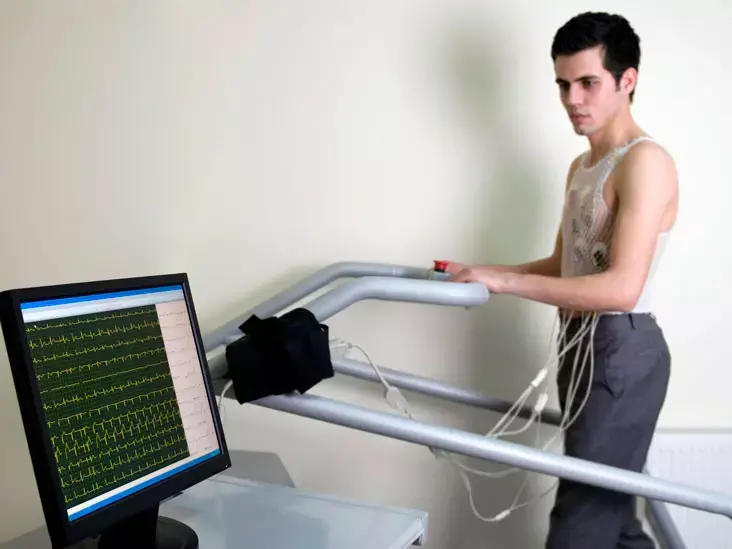- Home
- Medical news & Guidelines
- Anesthesiology
- Cardiology and CTVS
- Critical Care
- Dentistry
- Dermatology
- Diabetes and Endocrinology
- ENT
- Gastroenterology
- Medicine
- Nephrology
- Neurology
- Obstretics-Gynaecology
- Oncology
- Ophthalmology
- Orthopaedics
- Pediatrics-Neonatology
- Psychiatry
- Pulmonology
- Radiology
- Surgery
- Urology
- Laboratory Medicine
- Diet
- Nursing
- Paramedical
- Physiotherapy
- Health news
- Fact Check
- Bone Health Fact Check
- Brain Health Fact Check
- Cancer Related Fact Check
- Child Care Fact Check
- Dental and oral health fact check
- Diabetes and metabolic health fact check
- Diet and Nutrition Fact Check
- Eye and ENT Care Fact Check
- Fitness fact check
- Gut health fact check
- Heart health fact check
- Kidney health fact check
- Medical education fact check
- Men's health fact check
- Respiratory fact check
- Skin and hair care fact check
- Vaccine and Immunization fact check
- Women's health fact check
- AYUSH
- State News
- Andaman and Nicobar Islands
- Andhra Pradesh
- Arunachal Pradesh
- Assam
- Bihar
- Chandigarh
- Chattisgarh
- Dadra and Nagar Haveli
- Daman and Diu
- Delhi
- Goa
- Gujarat
- Haryana
- Himachal Pradesh
- Jammu & Kashmir
- Jharkhand
- Karnataka
- Kerala
- Ladakh
- Lakshadweep
- Madhya Pradesh
- Maharashtra
- Manipur
- Meghalaya
- Mizoram
- Nagaland
- Odisha
- Puducherry
- Punjab
- Rajasthan
- Sikkim
- Tamil Nadu
- Telangana
- Tripura
- Uttar Pradesh
- Uttrakhand
- West Bengal
- Medical Education
- Industry
Post Exercise High-Grade PVCs linked to long term risk of CV Mortality: Study

Enthusiasm for primary prevention and risk assessment in asymptomatic people has been spurred by recent advances in prevention research.
Recent study findings suggest that patients with high-grade premature ventricular contractions (PVCs) during the recovery period following exercise were linked with long-term risk of cardiovascular mortality in asymptomatic individuals. The study findings were published in the Journal of the American College of Cardiology on 07, December 2021.
Although exercise stress testing is widely used for diagnosis and risk stratification of symptomatic patients with suspected or known coronary artery disease (CAD), its prognosis in asymptomatic individuals remains uncertain. Therefore, Dr Samia Mora and her team conducted a study to investigate whether high-grade PVCs during stress testing predict mortality in asymptomatic individuals.
In this retrospective cohort study, the researchers included 5,486 asymptomatic individuals who took part in the Lipid Research Clinics prospective cohort had baseline interview, physical examination, blood tests, and underwent Bruce protocol treadmill testing. They used adjusted Cox survival models to evaluate the association of exercise-induced high-grade PVCs (defined as either frequent (>10 per minute), multifocal, R-on-T type, or ≥2 PVCs in a row) with all-cause and cardiovascular mortality.
Key findings of the study:
- Upon two decades of follow-up, the researchers observed overall 840 deaths, including 311 cardiovascular deaths.
- They found that high-grade PVCs in 1.8% of patients during exercise, in 2.4% of patients during recovery from exercise, and in 0.8% of patients during both exercise and recovery.
- They noted that the association between high-grade PVCs during recovery and CV mortality remained significant after adjustment for age, sex and traditional risk factors (aHR = 1.82) as well as adjustment for exercise duration, heart rate recovery, achieving target heart rate and ST-segment depression (aHR = 1.68).
- They also found similar findings in the clinical subgroups.
- They noted that the high-grade PVCs observed during recovery was associated with CV mortality (adjusted HR = 1.59). However, they did not observe a similar association for high-grade PVCs during exercise (aHR = 1.16).
- They further noted that recovery PVCs did not improve 20-year cardiovascular mortality risk discrimination beyond clinical variables.
The authors concluded, "High-grade PVCs occurring during recovery were associated with long-term risk of cardiovascular mortality in asymptomatic individuals, whereas PVCs occurring only during exercise were not associated with increased risk".
For further information:
DOI: https://doi.org/10.1016/j.jacc.2021.09.1366
Medical Dialogues Bureau consists of a team of passionate medical/scientific writers, led by doctors and healthcare researchers. Our team efforts to bring you updated and timely news about the important happenings of the medical and healthcare sector. Our editorial team can be reached at editorial@medicaldialogues.in.
Dr Kamal Kant Kohli-MBBS, DTCD- a chest specialist with more than 30 years of practice and a flair for writing clinical articles, Dr Kamal Kant Kohli joined Medical Dialogues as a Chief Editor of Medical News. Besides writing articles, as an editor, he proofreads and verifies all the medical content published on Medical Dialogues including those coming from journals, studies,medical conferences,guidelines etc. Email: drkohli@medicaldialogues.in. Contact no. 011-43720751


